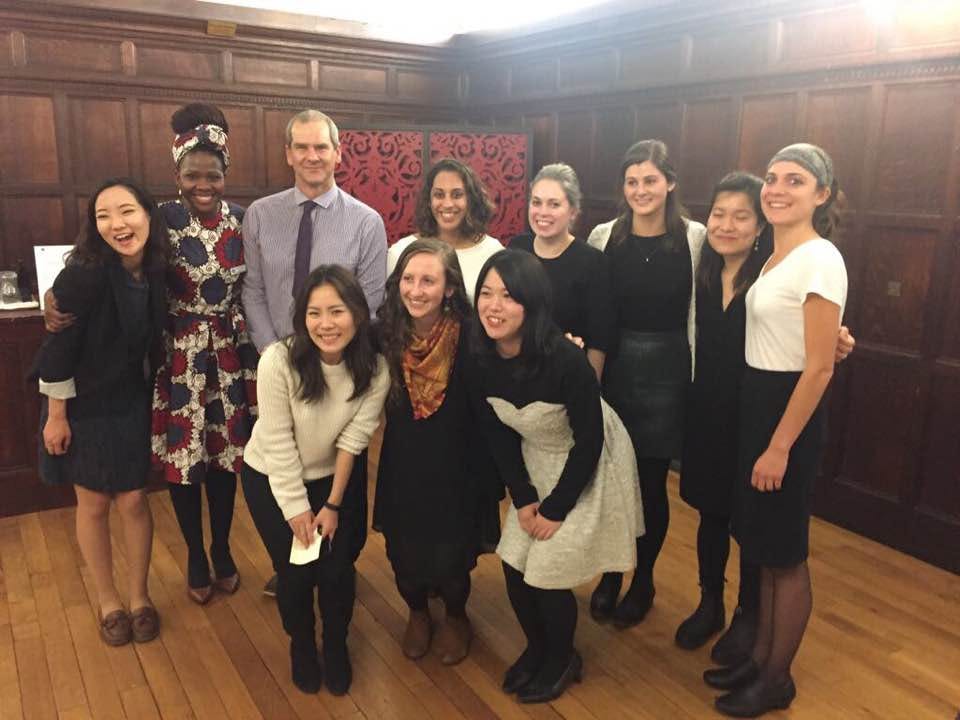This piece was originally published on Medium on 20 November 2017.
The motto of Rotary International is “service above self,” and this manifests for different clubs all over the world through local, regional, and global goals. While some goals are tangibly expressed, such as working to eradicate polio and increasing access to clean water for communities, other goals, like working to increase dialogues surrounding peace and conflict resolution in both global and local contexts are harder to measure and evaluate. There are so many things that we talk about when we talk about the concept of peace, that sometimes it seems as though there is an idealism without a clear definition of what peace is, much less how it might be practically achieved. As we look at the world, and everything that is happening in our contemporary space and time, it can also be hard to see how and where idealism can meet with practicality to find tangible solutions. Though my own transition to starting my PhD has been full of both excitement and challenges, I’ve been so honored to be supported by an organization that is taking small steps to move forward towards a more peaceful future in two tangible ways: Peace Advocacy training and Peace Debates.
The Peace Debates were something I had the chance to experience my first week in Cambridge. The Rotary Club of Cambridge-South hosts and organizes a debate between the sixth-form colleges in the area, where students have the chance to debate each other on topical issues that most of us are struggling to find answers for as adults. This year, the topics ranged from Brexit to internet trolls, and it was refreshing to hear the takes of the next generation. This was not only because they proved that yes, the kids are going to be alright (if we can stop being stupid long enough to pass the world into their care – I’m no longer certain of this), but also because it showed that for all the handwringing about the state of education and disruption of the social fabric by the internet and mass media, it is still possible to teach younger members of our society to think critically, and think big, and take on the reality of hard questions head-on. In my work as a facilitator, I have seen the ways in which we infantilize the ability of adolescents and teens to think about themselves in relation to their peers, their society, and to the world at large. I think, if we want to start really affecting positive change, we need to start having cross-generational conversations with younger generations, because given the chance, they do have quite a lot to say. I really hope that I can bring a model of this program home, maybe encourage debates across Interact clubs, or local schools, or otherwise help with the growth of this model here. After all, the best advocates for peace in this world are the voices who will be on this earth after our own are silenced. They should be fostered now; that is the meaning behind the proverb about planting gardens and trees we ourselves will never sit in the shade of.
A part of the work being done on that front, too, is through the Rotary Peace Advocate training done through the Rotary Peace Project. Founded by Jean Best of the Rotary Club of Kirkcudbright, Scotland, who addressed the UN General Assembly about the project during Rotary International Day on Nov. 11 2017, the project seeks to train participants in how to recognize sources of conflict in their daily lives and the tools they need to resolve conflict more peaceably, or even before it starts. Pat Webb, who is one of the Assistant Governors of Rotary District 1080 led training in this program for Global Grant Scholars in November, where we were also joined by another student in the Education Faculty at the University of Cambridge. During the training which consisted of identifying different kinds of conflict that students encounter, and how to both intervene in and empower students to intervene in such conflicts, Pat also shared with us some of her experiences teaching these things with students in East Anglia, and some of the exercises she uses to encourage them to discuss different problems and identify what kind of learners they are, and strategies to figure out how they can build successful paths through life for themselves. One of my favorite activities was partnering up and sitting back to back, with one person having drawn a simple picture, and then having to tell the other person exactly how to draw it, too. While I am familiar with communication games, it is always a lot of fun to see how other people do things, and how they alter them to fit their specific communities. This is something else that I would hope would be expanded globally, but at the very least hope to take home with me as well, and pass on to others.

Raymond Chandler once wrote an essay titled “What do we talk about when we talk about love?;” I think perhaps a more prudent question for Rotarians to ask themselves is, “what do we talk about when we talk about peace?” It’s a very easy word to throw around and consider vaguely in a global sense. No war? Sure. No famine? Clean water for all? These too sounds like components of a world with less conflict. But when we think about what peace looks like in our own communities, we need to work a little harder to imagine what implementing a more peaceful future would look like. However, programs like the Peace Project and the Peace Debates do show us that at the very least, including the voices of future generations is definitely part of the solution.
